What One ACLU Director Is Doing to Protect Rights
Abdi Soltani, head of the American Civil Liberties Union of Northern California, zeros in on President Trump’s anti-immigrant agenda.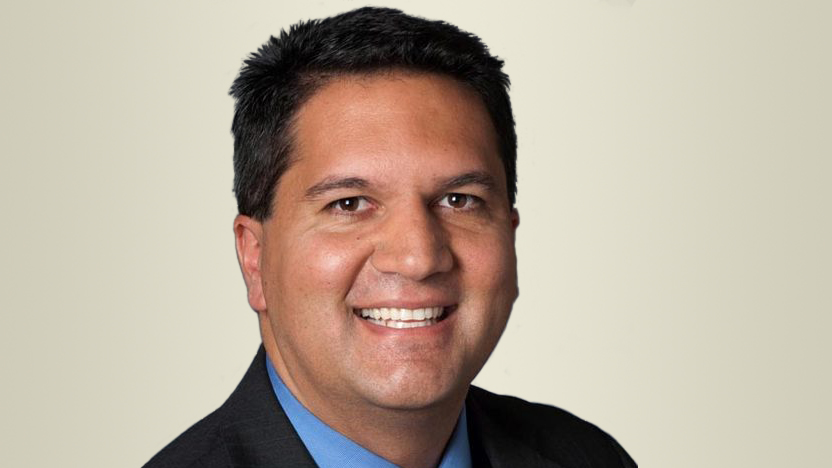 Abdi Soltani, head of the American Civil Liberties Union of Northern California. (Twitter)
Abdi Soltani, head of the American Civil Liberties Union of Northern California. (Twitter)
Abdi Soltani grew up in Massachusetts and moved to California to attend Stanford University. As a community organizer, he became interested in legal power and began working with the American Civil Liberties Union. In 2009, he became the director of the ACLU of Northern California and expanded the organization’s presence in the Central Valley, adding an office in Fresno. Soltani has made it a priority to fight anti-immigration policies, work on bail reform and help decrease the number of people behind bars.
San Francisco’s Yerba Buena Center for the Arts recently honored Soltani for his inspiring work.
Soltani sat down with Truthdig to talk about the ACLU’s role in making California a more progressive state and the importance of the arts in First Amendment issues.
Emily Wilson: Do you remember when you first heard about the ACLU?
Abdi Soltani: My first confirmable memory was when Michael Dukakis, the governor of Massachusetts, was running for president against George [H.W.] Bush in 1988. I lived in Massachusetts, and in the presidential debate, Bush accused Dukakis of being a card-carrying member of the ACLU. I was maybe in ninth grade, and that’s my for-sure first memory.
I know by the time I was in 11th grade and studying American history that I certainly knew about the ACLU. But my first memory would definitely be George Bush accusing Dukakis of being a card-carrying member. It piqued my interest, because it’s got to be a good thing if it’s worthy of an accusation in a presidential campaign.
EW: How did you end up working for the ACLU?
AS: I got interested in the ACLU working as a community organizer working on civil rights. Working as an organizer, our whole job was to build power among low-income people and communities of color, including youth. One form of power in our society is legal power, and I liked the idea that they should have access to legal power.
EW: When you became director, what was your focus?
AS: I had worked alongside the ACLU for well over a decade, so I was quite familiar with what the ACLU was able to do. My cover letter when I applied for the executive director position was kind of like a work plan of some priorities. One was the importance of building a stronger presence for the ACLU in California’s Central Valley. That’s a region of the state which has incredibly vibrant communities, diverse and powerful leaders, huge civil rights problems and very few legal resources. We began doing more outreach that built on past cases and projects we had done in the Central Valley, and that led to us opening an office in Fresno.
EW: What were some of the cases?
AS: Before I came to ACLU, we had a case in Fresno. There was a raid of a homeless camp that led to the destruction of all the property of the homeless people who lived there. That included not just personal effects, but medicine and childhood photos—so maybe people’s only memories of childhood. That was a case that had been done soon before I got there. Another one was an issue of surveillance—sending infiltrators into a peace group in Fresno. We’d always done work in the Central Valley, but we just wanted to expand it.
Some issues we’ve taken on—one is a lawsuit against Fresno County for inadequate access to counsel for people facing criminal charges. That’s a big case, and it’s been going on for several years. It takes a lot of work to build a case like that. It definitely resonates with people facing trial who have inadequate counsel and are under pressure sometimes to plead guilty.
Especially when you combine it with a second issue we’re tackling through state legislation, which is the issue of money bail. Many people incarcerated in our jails are there awaiting trial, and many can’t afford to pay bail. There’s been great progress nationally, and certainly in California, on that.
EW: How do you think the ACLU of Northern California has been part of making California a more progressive state?
AS: I was an undergraduate in the early 1990s when I moved to California, and one of the things that attracted me was its diversity. And at that time, the state was going through a major backlash to that diversity in the form of Proposition 187, which was the anti-immigrant ballot measure. And there was Proposition 184, which was the three-strikes-you’re-out ballot measure. At the time, Gov. [Pete] Wilson really stoked the fear of both immigration and crime [by] using racially coded language to drive up fear and win his re-election. He distracted people of California from economic issues and scapegoated communities of color as a way to catapult his re-election. That was California in 1994. Over the last 20-plus years, we’ve seen the people of California embrace a different path, and our state now has vigorous policies that recognize the contributions of immigrants to the state, and we have adopted a number of policies that are reducing incarceration. What I see has driven that is the amazing leadership of tens of thousands of people who worked really hard, and among those people are ACLU attorneys and advocates who have worked on legislation and worked with those community leaders.
EW: You’ve said that Donald Trump’s ban of Muslim-majority countries brought together your life as director of ACLU and as an Iranian-American. How did it do that?
AS: Earlier today at the [Yerba Buena Center for the Arts] 100 event, Zahra Noorbakhsh spoke about these two words, “Iranian” and “Persian.” She’s quite funny about it. I always say I’m Iranian-American—I don’t say Persian. Persian is the beautiful cat, the beautiful rug. That’s like the ancient culture and history. It conjures up a different image, and I kind of want to embrace the whole package. My story as an immigrant is a little complicated. I was born in L.A., which makes me a citizen by birth. I grew up in Iran, and I immigrated back to the U.S. when I was 9. Being Iranian-American, we have the whole range of people. We also have relatives and family who want to come here to study or to celebrate the birth of a grandchild or to celebrate a wedding—all the reasons people want to travel. President Trump’s Muslim ban very specifically includes Iran. Iran is No. 1 of the countries in his ban in terms of the number of visas and people coming and going. On the weekend of his Muslim ban, my mom had just come back from Iran. We had planned in advance to go to Lake Tahoe with my kids, my wife and my mom to have a little bit of time with her. On that Saturday, I was cross-country skiing, and my phone wouldn’t stop ringing—I was getting phone calls, text messages and emails from Iranians all over the world. Either Iranians in America fearful of losing a visa, and people whose visas were about to expire and wouldn’t have anywhere to safely go to, and people whose grandparents were stranded en route at European airports. So here I am, an ACLU director, and here I am, an Iranian-American, and those two merged right into one thing.
EW: What’s the most important thing to remember in responding to this administration?
AS: The most important thing is we cannot get distracted by the mayhem, and we need to work really hard on stopping the policies and the actions that violate people’s rights.
EW: How do you think the arts are important to civil rights?
AS: A major part of the ACLU’s history over 100 years has been protection of the First Amendment. It’s an incredibly important set of principles. There’s a wonderful book by former ACLU legal director Burt Neuborne, “Madison’s Music.” Burt makes the point that we should read the First Amendment as a whole.
If you’ll indulge me, I’ll share with you what Burt says. The First Amendment begins with freedom of religion and separation of church and state, and the cases have made clear: It’s inclusive of conscience. It’s not just organized religion, but also conscience—our innermost values and beliefs and principles. From that, you go to freedom of speech, which is how you express your values and beliefs, and from that to freedom of the press, which is how you broadcast those beliefs. Then it protects your right to peaceably assemble, which is to gather yourself in a group with an audience. And it culminates in the right to petition government for a redress of grievances. When you look at that chain, from our innermost values to our right to petition government, there are these stages of expression that culminate from our deepest-held values to our relationship to our government.
So it is no wonder that so many of the great and famous cases related to the First Amendment dealt with the arts. Right here in San Francisco in the 1950s, the Beat poets were a force. One of them, Allen Ginsberg, had this beautiful poem, “Howl.” It was being censored, and the ACLU teamed up with City Lights Bookstore and represented them to make sure this poem could be published and distributed.
So I really look to artists to be guardians of the First Amendment. The First Amendment may guard and protect artists, but we also need artists to guard and protect the First Amendment.
Your support matters…Independent journalism is under threat and overshadowed by heavily funded mainstream media.
You can help level the playing field. Become a member.
Your tax-deductible contribution keeps us digging beneath the headlines to give you thought-provoking, investigative reporting and analysis that unearths what's really happening- without compromise.
Give today to support our courageous, independent journalists.

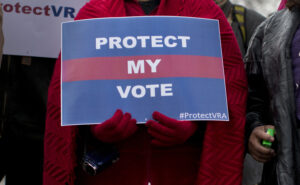

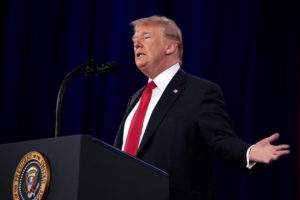
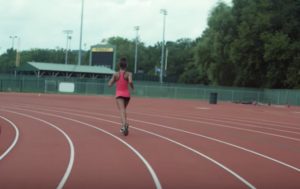
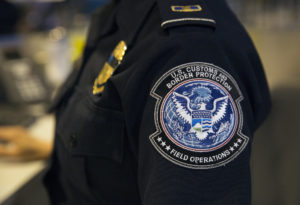
You need to be a supporter to comment.
There are currently no responses to this article.
Be the first to respond.